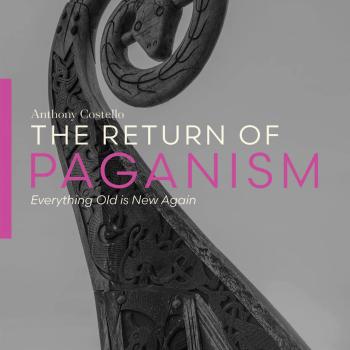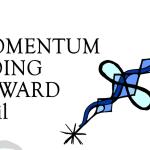The fact that Donald Trump made it to the Presidency
is final and conclusive proof that the system is broken.
My endorsement is of infinitesimal value to any politician or party. But I’m here to stand up for a principle expressed by that great American anarchist, Buddhist, and lover of Pan, Henry David Thoreau, in one of the few sensible political essays ever written, Civil Disobedience: “I ask for, not at once no government, but at once a better government. Let every man make known what kind of government would command his respect, and that will be one step toward obtaining it.”
I live in Maryland, a deep blue state where Trump is 30 points behind in the polls, which since 1952 has given its electoral votes to the Republican candidate only when it was an electoral college blowout. It is as sure a bet as exists that Biden will win Maryland. (I will put $1,000 of my hard earned savings on the line if anyone is willing to bet otherwise.)
This leaves me free to skip the complicated lesser-of-two-evils calculus — more complex than many are making it out to be (see Appendix) — and vote for something, rather than against the worst candidate.
I acknowledge that the situation is different in swing states, and will not blame someone there for voting on a lesser-evil basis.
But under our electoral system it does not matter whether Biden wins a state like Maryland (or loses a deep red state) by 800,000 votes or 600,000 votes. But 200,000 votes could make a big difference for a minor party in terms of ballot access and funding in 2024.
More that that, a minor party gathering hundreds of thousands of votes brings attention to their ideas.
The obvious choice for us malcontents on the left who chose to vote at all (and we should) is the Green Party.
But many Green activists and past candidates are alleging that the party’s primary process was rigged, and are boycotting the Green Party this year.
And there are older problems with the Greens, from the internal fissures that remain from the infighting between the “Green Party of the United States” and “Greens/Green Party USA”, to their advocacy of European-style parliamentary, party-based, faux-democracy. The Green Party has a tendency to look too much to Europe and the authoritarian, technocratic Marxist traditions of socialism, rather than at our rich home grown democratic socialist tradition, at Debs and Spooner and Milwaukee’s “sewer socialists”.
So I was delighted to find a fresh alternative on my ballot: the Bread and Roses party, founded by its Presidential candidate, philosopher and political activist Jerome Michael Segal.
Now obviously Segal is not going to win; he’s said he does not “have any fantasies about actually being president”, but that “[t]his is really about ideas and about adding something to the current political discourse that is lacking.”
The party cites that great American proto-Buddhist and proto-Pagan Thoreau as one of their roots:
Our roots are broader than the democratic socialist tradition. We strongly identify with the “plain living, high thinking” traditions of America, whether the Quakers, John Adams, Thoreau, the experimental utopian communes of the Nineteenth and Twentieth Centuries, or the “Cooperative Commonwealth” sought by generations of American workers and farmers. We seek a socio-economic framework that makes it easier to pursue an Alternative American Dream, one of modest consumption, solid economic security, and abundant leisure, sufficient to do the things in life that matter most.
“Bread”, of course, refers to the basic material needs people need to sustain their lives. But Bread and Roses sees that beauty, nature, art, friendship, the arts — “Roses” — and not just material production and consumption, are what makes those lives meaningful.
Further, “Roses” is central to our outlook. First expressed by the suffragist Helen Todd in 1910 and immortalized in the 1911 poem “Bread and Roses” by James Oppenheim and the 1912 Lawrence textile strike, “Roses” stands for the non-material things that make life worth living—time, art, friendship, love, nature and beauty, both in the urban and natural environment, a society With Beauty For All. More fundamentally, in demanding “Bread and Roses too” the women of Lawrence were saying, “We are not just laborers who need only material things. We are also complex human beings, with complex needs for lives of meaning and richness.” We agree. We believe that a Renaissance of Roses is America’s future.
Now it’s not my point here to speak specifically about Segal’s specific policy ideas for bringing about this vision, I could argue at length for or against various detailed points. I’m just happy to give my vote to something which is neither a slightly-lesser-of-two-evils, nor an alternative that seems stuck in the traps of the past, but seems to be moving in generally the right direction.
However this election goes, the fact that Donald Trump made it to the Presidency is final and conclusive proof that the system is broken and must be replaced.
And even if the Bread and Roses Party itself is never heard from again after this cycle, it represents an approach which can help inform our work building that replacement, and I’m happy to give it my vote and my endorsement.
Appendix: Is A Biden Victory The Lesser Evil?
The 2020 election presents us with a Kobayashi Maru, a no-win scenario. The major parties have given us on one side a vile and incompetent con-man demagogue willing to pander to racists, and on the other a man who helped lead the country into the criminal invasion of Iraq and who bears much responsibility for the expansion of the carceral/police state which many have begun to wake up to.
But in assessing the “lesser evil”, the question is not which of them is the greater sinner, which of them will be frozen into the ice of the ninth circle of Hell closest to Satan. The question is the likely outcome — long-term and global — if either is elected.
If Trump is re-elected but, as seems likely, the Democrats retake the Senate, then he would be utterly restrained. The Senate can block any judicial appointments. So at the federal level, nothing gets worse — but nothing gets better. The federal pandemic response remains a mess.
But with center-right Biden out of the picture, progressive Democrats are relatively stronger. Progressive Dems might be able to make some progress at the state and local levels. Just as Clinton’s defeat in 2016 led to the emergence of “The Squad” in 2018, a Biden loss could bring progressive candidates to the fore in the 2022 midterms (where the Senate map is favorable to Democrats holding a majority). And after two losses by center-right Dems, there might be a push for a progressive Presidential candidate in 2024.
On the other hand, if Biden wins and the Dems take the Senate, we would see some small improvements in our domestic policies. Nothing large — Biden has promised that nothing significant will change — but we would get some moderate judges to balance the far-right appointees of the past few years, and the federal pandemic response would be more competent. (Though we would likely see how little the federal response matters compared to response at the state level.)
But a Biden presidency would pull the Democrats further right at all levels and would not address the factors that have led to the growth of Trumpism. The Democrats would be likely to lose the House in 2022, leaving Biden only two years for any progress.
Biden may not last his full term, either dying in office or becoming too debilitated to continue. If he’s still alive when the 2024 elections roll around, he’ll be a few weeks shy of his 82nd birthday, not a viable candidate. He’s a one-term President who sets up a Republican win in 2024, while weakening the Democrats.
So if Biden wins, we can expect that 2024 will see the election of a Republican worse than Trump, someone as bad on policy but less personally vile and more competent, with a Democratic Party pulled further right and less able to counter them.
The calculus of which of these two awful choices represents a long-term, global scope “lesser evil” is not simple. And the only hope is to break open the two party system.


















